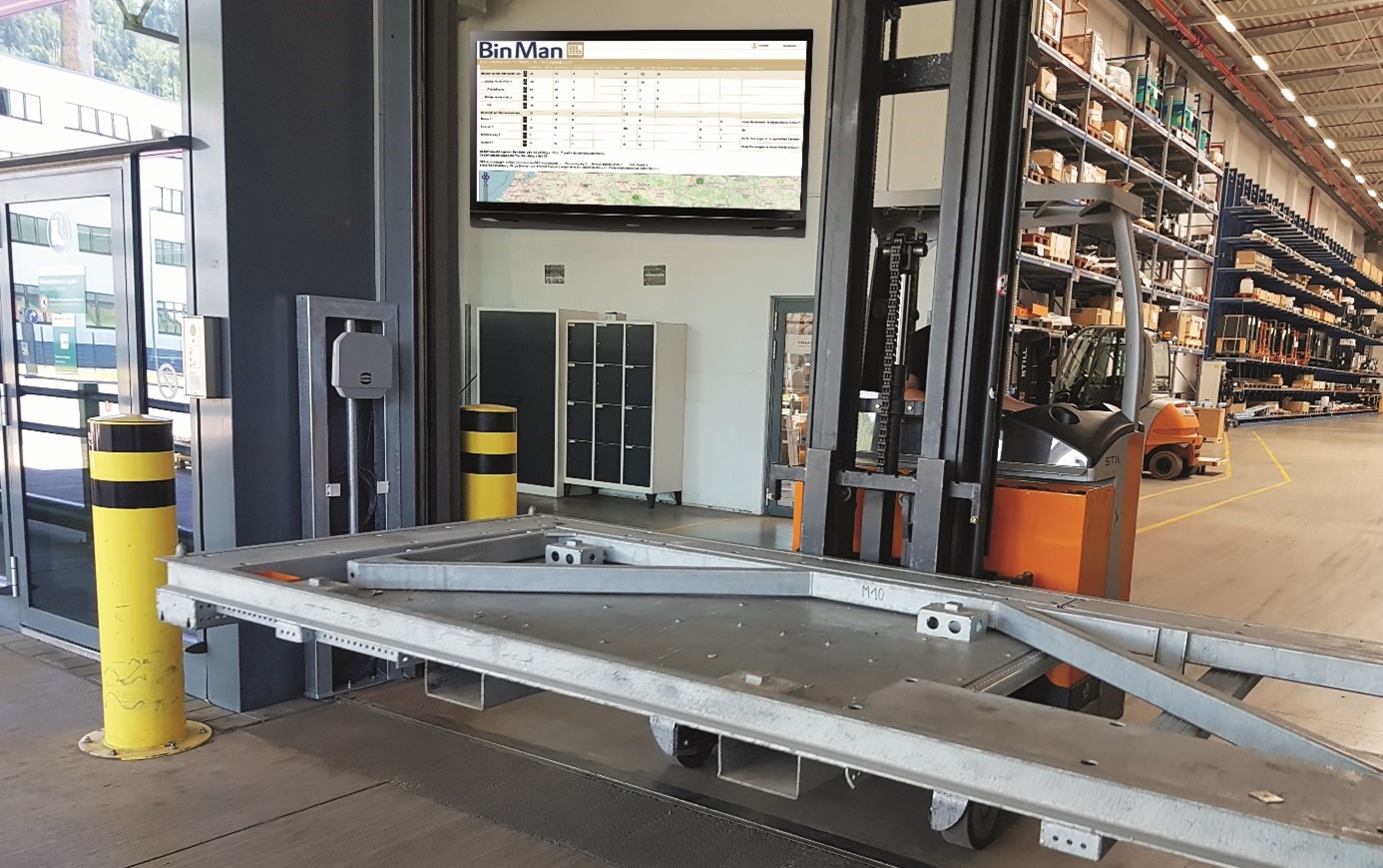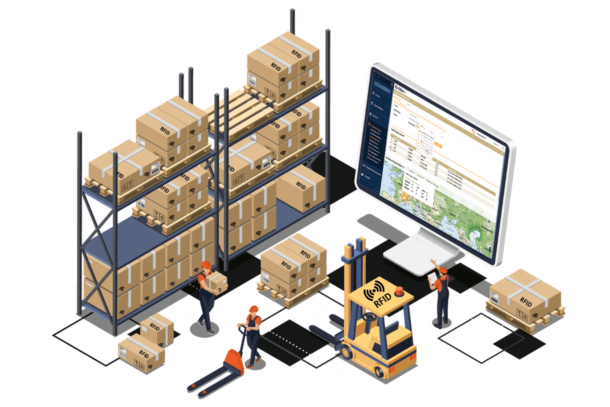
BinMan® meets RFID: More security and transparency in production and logistics thanks to serialized container tracking
In the interaction between production and logistics, the question always arises as to where the containers are currently located – at the plant, at the supplier or in transit. Are they empty, loaded, dirty or even defective and therefore currently unavailable? This is where efficient container management systems come into play, providing real-time information to the decision-maker. However, the information is only as good as the manual data input. Bookings are often not made due to time constraints or are edited by the human factor with incorrect entries, as a result of which the digital data basis is removed from the physical stocks. Incorrect planning due to an unclear data basis can cost a company a lot of time and resources. The result would be the purchase of additional containers to increase the safety stock, but this only cures the symptoms. So how can the cause be remedied?
The solution: the integration of AutoID processes! These include, for example, RFID technology, which enables automated data capture in a wide range of logistics applications – above all in production – and thus synchronizes and optimizes processes.
The use of serialized load carriers equipped with barcodes or RFID transponders can create the basis for paperless, sustainable and efficient production. Automated data capture and subsequent data exchange with a container management system enable continuous tracking of load carriers within production and along the entire value chain.
The best of both worlds combined: LOGSOL and PCO
Thanks to close cooperation between LOGSOL and one of northern Germany’s leading IT service providers – PCO in the AutoID Solutions division – the BinMan® container management system has been expanded to include RFID technology as a management layer for the recorded data. By combining the expertise of PCO in the field of RFID and LOGSOL in the field of software-supported container management, manual container bookings are now a thing of the past. With the introduction of effective container management and its intelligent networking with existing systems, the flow of materials and containers becomes transparent everywhere and at all times. From the supplier to your own value chain to the customer.

Increasing sustainability
The advantages of serialized load carriers are far-reaching: a company saves money by using RFID and downstream management software in container management. This is because an increasing loss of containers is counteracted and therefore unnecessary container purchases are also eliminated. This reduced stock leads to less space, which can be used for other purposes or can even lead to further savings in rental costs.
The ecological benefits also include the avoidance of paperwork. Merging the load carrier ID with the respective production order minimizes the risk of errors and ensures clear assignment. As an intelligent load carrier, the container enables continuous material flow and production flow control by linking its identification number with the material data in the ERP system.
In addition, valuable employee resources are available for other operational activities. By streamlining processes, personnel costs can be reduced by up to 50%, while at the same time improving booking accuracy. RFID allows the company to react much more flexibly to fluctuations in the market, which ultimately has a positive impact on competitiveness and makes the supply chain more agile.